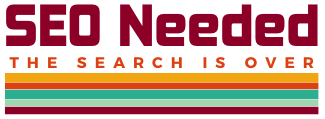FAQs
Welcome to our FAQs page! At SEO Needed, we are a leading SEO Miami company, offering expert SEO services in Miami and surrounding areas like Coral Gables and Dade County. As one of the top Miami SEO firms, we specialize in providing customized solutions to help businesses improve their online presence. Whether you’re looking for local SEO Miami, SEO services in Coral Gables, or guidance from Miami SEO experts, we’ve got you covered. Our team of SEO consultants and Miami SEO specialists is here to help you drive more traffic and achieve your digital marketing goals.
On this page, you’ll also find helpful information on what SEO is and how it can benefit your business. Learn why we are considered the best SEO company in Miami and how our SEO services can make a difference.
SEO stands for Search Engine Optimization. It’s the practice of optimizing your website to improve its visibility on search engines like Google, Bing, and Yahoo. The goal is to increase organic (non-paid) traffic to your site.
SEO is crucial because it helps search engines understand your content and, in turn, improves the chances of your website ranking higher in search results. This increased visibility can lead to more traffic, higher credibility, and better chances of reaching your target audience.
Search engines use complex algorithms to crawl, index, and rank web pages. They consider various factors such as relevance, quality, and authority to determine the ranking of a page in search results.
On-page SEO involves optimizing elements on your website, such as content, HTML, and images. Off-page SEO, on the other hand, focuses on external factors like backlinks, social signals, and online reputation.
Keywords are the terms or phrases users enter into search engines. They are crucial for SEO because they help search engines understand the content of your pages. Effective keyword research and usage can improve your site’s visibility for relevant searches.
Backlinks are links from other websites to yours. They are essential for SEO because search engines view them as a vote of confidence in your content. Quality backlinks can improve your site’s authority and, consequently, its search engine ranking.
Site speed is a ranking factor for search engines. Faster-loading websites provide a better user experience, and search engines prioritize delivering results that offer a positive user experience.
Mobile optimization involves ensuring that your website functions well and looks good on mobile devices. With the increasing use of smartphones, search engines prioritize mobile-friendly sites. Mobile optimization is essential for both user experience and SEO.
Regularly updating your website content can be beneficial for SEO. Fresh content signals to search engines that your site is active and relevant. The frequency of updates depends on your industry, but aim for consistent and valuable updates.
SEO tools help analyze and optimize your website. Popular tools include Google Analytics, Google Search Console, SEMrush, Moz, and Ahrefs. The choice of tools depends on your specific needs and budget.


